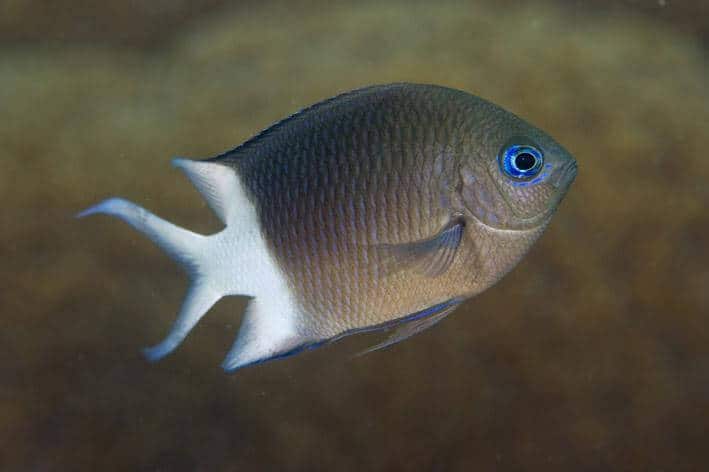In a world first study, researchers at the ARC Centre of Excellence for Coral Reef Studies (Coral CoE) at James Cook University have unlocked the genetic mystery of why some fish are able to adjust to warming oceans.
In a collaborative project with scientists from the King Abdullah University of Science and Technology (KAUST) in Saudi Arabia, the researchers examined how the fish’s genes responded after several generations living at higher temperatures predicted under climate change.
“Some fish have a remarkable capacity to adjust to higher water temperatures over a few generations of exposure,” says Dr Heather Veilleux from the Coral CoE.
“But until now, how they do this has been a mystery.”
Using cutting-edge molecular methods the research team identified 53 key genes that are involved in long-term, multi-generational acclimation to higher temperatures.
“By understanding the function of these genes we can determine the biological processes that enable fish to cope with higher temperatures,” explains Dr Veilleux.
“We found significantly higher levels of metabolic gene activity in fish exposed to higher temperatures for two generations, indicating that shifts in energy production are central to maintaining performance at higher temperatures”.
“Immune and stress genes also responded at a higher level in the second generation, indicating that increased levels of these genes are required to allow these fish to better cope in warmer water,” Dr Veilleux says.
The project involved rearing coral reef fish at different temperatures for more than four years in purpose built facilities at James Cook University, and then testing their metabolic performance.
“We used state-of-the-art genetic sequencing and bioinformatics to examine patterns of gene expression in the fish,” explains Professor Tim Ravasi from KAUST.
“By correlating the patterns of gene expression with the metabolic performance of fish that had acclimated to the higher temperatures we were able to identify which genes had made this acclimation possible.”
“Surprisingly, we found that some proteins that respond to short-term thermal stress (called heat-shock proteins) did not respond over the long-term,” says Professor Philip Munday from the Coral CoE.
“Heat shock proteins help maintain the structure of other essential proteins. Consequently, we thought they might also contribute to long-term acclimation to higher temperature,” Professor Munday says.
“However, heat shock proteins were not involved in multigenerational acclimation to higher temperatures, suggesting that they are not good indicators of the capacity to cope with climate change.”
The study is the first to reveal the molecular processes that may help coral reef fishes and other marine species adjust to warmer conditions in the future.
“Understanding which genes are involved in transgenerational acclimation, and how their expression is regulated, will improve our understanding of adaptive responses to rapid environmental change and help identify which species are most at risk from climate change and which species are more tolerant,” Dr Veilleux says.



Did you know that nuclear energy contributes to climate change?
>> Nuclear energy is NOT carbon-emission-free.
Nuclear power plants release 90 – 140 g of CO2 per kwh.
PLUS each nuclear power plant releases Carbon-14 which is CONVERTED TO CO2 in the atmosphere!
Nuclear energy = Carbon14 = CO2 = Climate Change
>> Nuclear power plants also release radioactive Krypton85 which can affect the electric conductivity of the atmosphere; thereby affecting weather.
>> Nuclear power plants also release dangerous radiation into the air and water during their daily operations.
This radiation is linked to all kinds of cancers, heart disease, diabetes, birth defects, miscarriages, thyroid problems, leukemia, ADHD, autism, the list goes on and on
>> And during the refueling of nuclear power plants, up to 1,000X the amount of radiation and Dr. Ian Fairlie believes this is what causes the increases in childhood leukemias around nuclear power plants.
>> You can learn more about this at the highly recommended website ENENEWS dot com